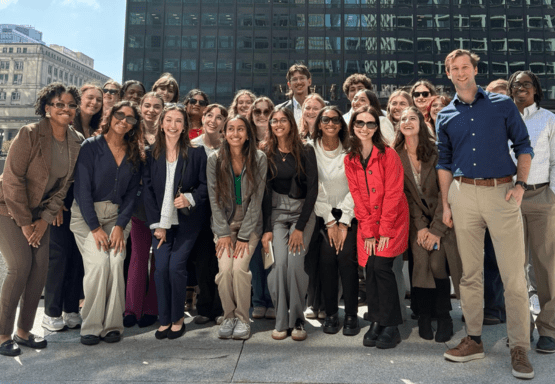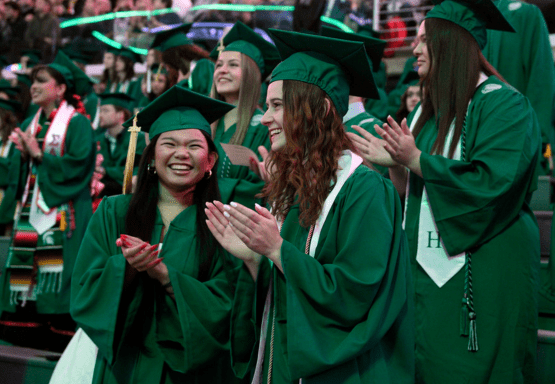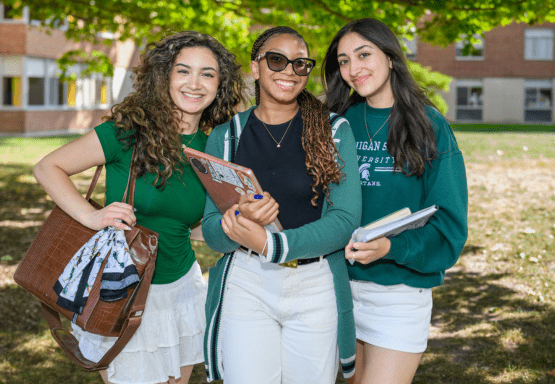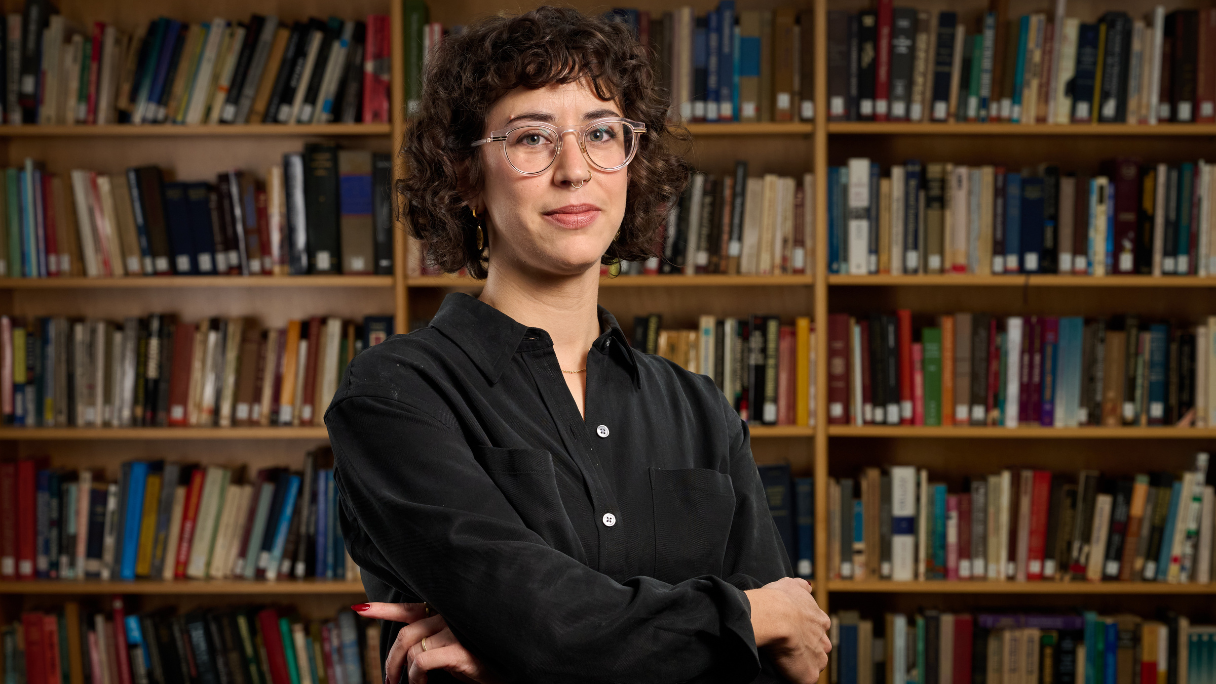
Florencia Rojo joined James Madison College this fall as an Assistant Professor of Social Relations and Policy. Before joining JMC, she served as an Assistant Professor of Sociology at Colorado College. Rojo’s teaching-scholarship is informed by her training as a medical sociologist and her community advocacy with Latin American immigrant families.
Can you tell us about your academic background?
I was a sociology major with a gender studies minor in college. I've always been interested in studying inequality, understanding social problems and applying sociological lessons to the world.
After undergrad, I worked at a domestic violence organization in Chicago, specifically in violence prevention with youth in schools. I loved working with young people, I loved being out in schools and I felt that our programs were important, but I was also starting to notice so many structural social problems that weren’t going to be addressed by behavioral interventions. That was one of the experiences that brought me to grad school.
I ended up in a medical sociology Ph.D. program at University of California, San Francisco. UCSF is a health sciences institution, and our program was really interested in health inequality. I worked under mentors who studied violence as a health problem, including relationship violence and structural violence.
What was the focus of your dissertation?
As I was getting into my coursework, I was also developing relationships in my neighborhood, the Mission District in San Francisco, getting to know the community and meeting a lot of families who had lost people to police violence. There was suddenly a lot more attention to policing and race, and it was something that was really important in this community in particular because there had been three successive shootings of Latino men from 2014 to 2016. I was interested in what sanctuary city policies meant in a community where people don't trust the police. Then Trump was elected, and there were many changes to immigration policy. My project looked at how Central American immigrant families and organizations serving them were dealing with this rapidly changing immigration policy context.
How would you describe your research approach?
I consider myself a participatory action researcher and a community-based researcher. All of my projects have come out of building relationships first, being embedded in the community, understanding the social issues that matter to the people there and then research questions arise from that. Often, community members themselves set the agenda.
I'm a qualitative scholar, so I do in-depth interviews, observation and ethnography. I was able to do this work because I had built relationships and trust over many years so that people felt they could invite me in.
You’re coming to JMC from Colorado College. Can you tell us about the work you did there?
At Colorado College, I taught courses on immigration and developed a community-based research class that explores what it means to have a participatory approach to research. While I was there, I formed a long-term relationship with community members working in a food justice organization called Food to Power.
Through the connection with that organization, we interviewed people from low-income, low-food access neighborhoods about their strategies for getting food on the table and what they envisioned as food security in their neighborhood. We also ran an after-school program where high school students developed their own research projects, including a family recipes project that resulted in a community cookbook.
How do you see your work fitting into JMC?
I feel like this is a great fit for me. I've been doing undergraduate teaching for six years at liberal arts colleges, and I've gotten accustomed to smaller class, seminar-style teaching. Similarly to my research, I really value relationships so I like teaching in a context where I can get to know students and where I get to hear from them.
I'm also excited about JMC's interdisciplinary approach. I've never taught strictly disciplinary readings; I draw from scholars across different disciplines. Being in a policy college also aligns with my interest in applied work and developing emerging scholars who will make an impact on the community.
What courses are you teaching this semester?
This fall, I'm teaching “Social Theory and Social Relations,” which is a required sophomore class in SRP. I'm also teaching a senior seminar class titled "Race, Place, and the Food Justice Movement," drawing on my food justice work.
In the spring, I'll be teaching a course on Latin American immigration to the US and a qualitative research methods course.
How do you approach your teaching?
Similarly to my research, I really try to respond to what students are bringing in, their interests. I think that students learn from each other just as much as they would learn from an instructor. I encourage participatory engagement in the classroom.
Do you plan to continue your work from Colorado here in Michigan?
Yes, I'm still working on the project remotely with collaborators from Colorado. I'm also hoping to translate that work here and figure out how to do community-based work more locally. I'm interested in continuing my work in food justice and food access research because I find it's a really interesting intersection of other social issues.
I'm excited to learn more about the agricultural aspects, given MSU's history. There's also a lot of history of food organizing in this area, and I'm looking forward to connecting with folks doing work in across the state of Michigan. The immigration history and demographics here are different from California and Colorado, so that's something I hope to learn more about as well.
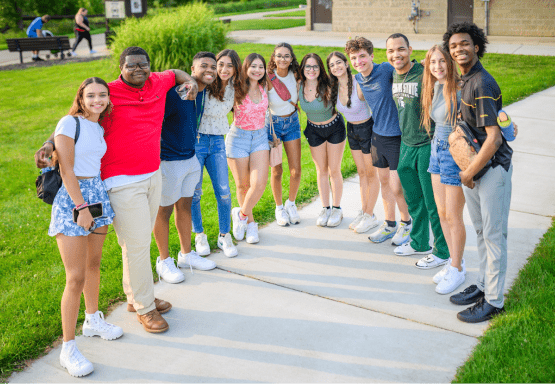
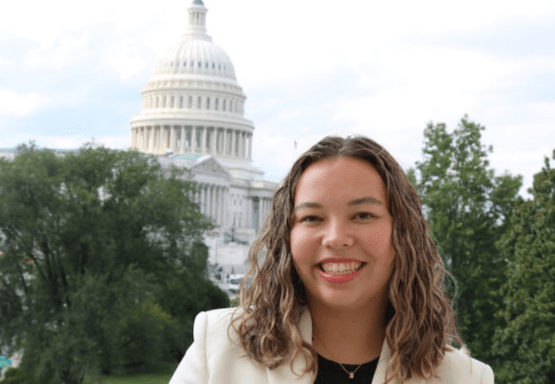
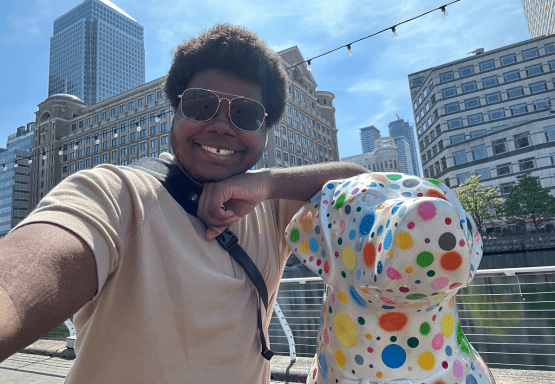
.png?h=384&iar=0&w=555)
